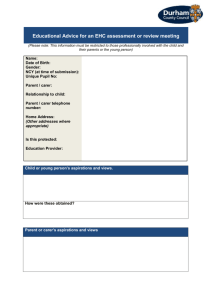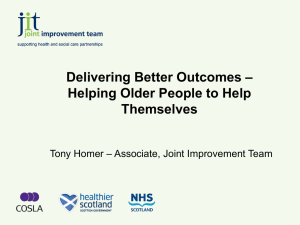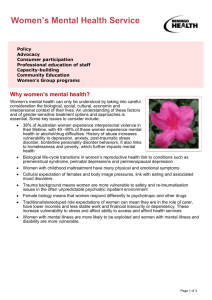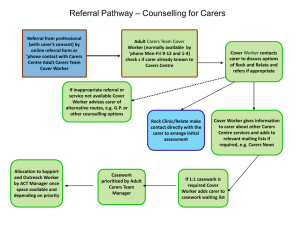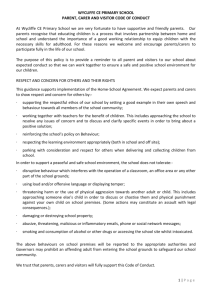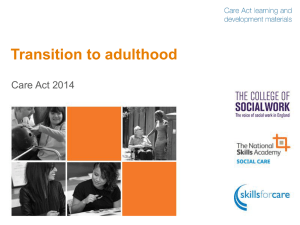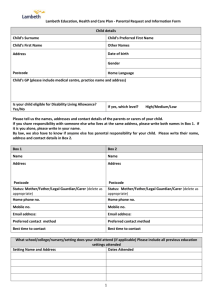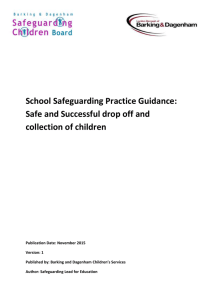Policy on the Drop Off and Collection of Children This policy should
advertisement
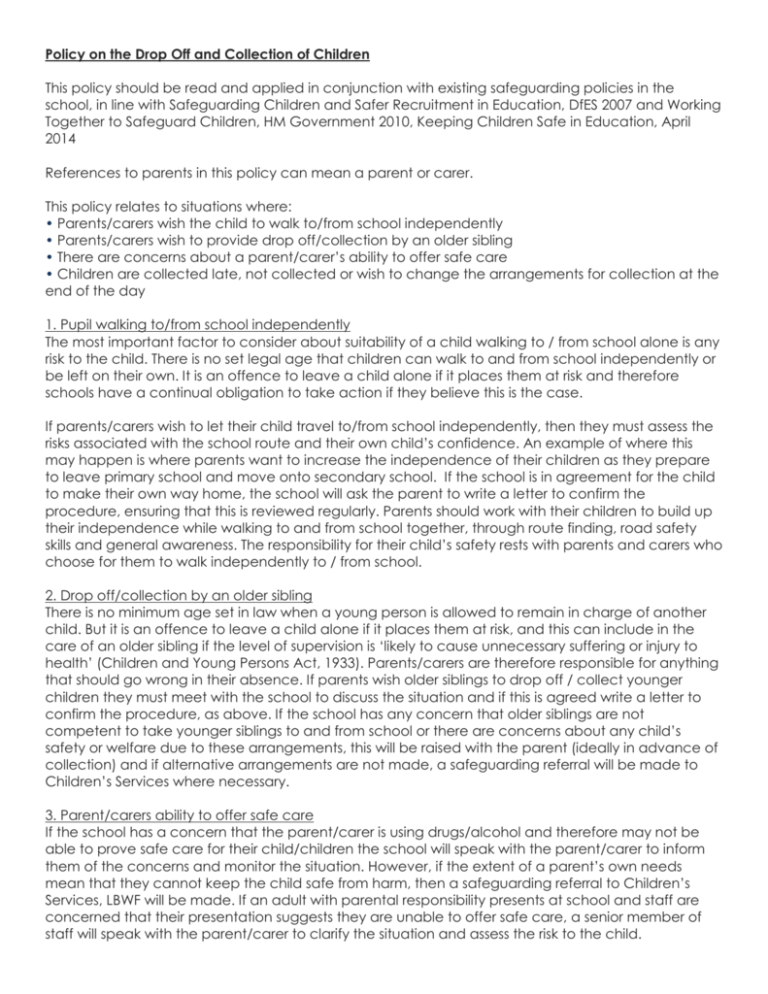
Policy on the Drop Off and Collection of Children This policy should be read and applied in conjunction with existing safeguarding policies in the school, in line with Safeguarding Children and Safer Recruitment in Education, DfES 2007 and Working Together to Safeguard Children, HM Government 2010, Keeping Children Safe in Education, April 2014 References to parents in this policy can mean a parent or carer. This policy relates to situations where: • Parents/carers wish the child to walk to/from school independently • Parents/carers wish to provide drop off/collection by an older sibling • There are concerns about a parent/carer’s ability to offer safe care • Children are collected late, not collected or wish to change the arrangements for collection at the end of the day 1. Pupil walking to/from school independently The most important factor to consider about suitability of a child walking to / from school alone is any risk to the child. There is no set legal age that children can walk to and from school independently or be left on their own. It is an offence to leave a child alone if it places them at risk and therefore schools have a continual obligation to take action if they believe this is the case. If parents/carers wish to let their child travel to/from school independently, then they must assess the risks associated with the school route and their own child’s confidence. An example of where this may happen is where parents want to increase the independence of their children as they prepare to leave primary school and move onto secondary school. If the school is in agreement for the child to make their own way home, the school will ask the parent to write a letter to confirm the procedure, ensuring that this is reviewed regularly. Parents should work with their children to build up their independence while walking to and from school together, through route finding, road safety skills and general awareness. The responsibility for their child’s safety rests with parents and carers who choose for them to walk independently to / from school. 2. Drop off/collection by an older sibling There is no minimum age set in law when a young person is allowed to remain in charge of another child. But it is an offence to leave a child alone if it places them at risk, and this can include in the care of an older sibling if the level of supervision is ‘likely to cause unnecessary suffering or injury to health’ (Children and Young Persons Act, 1933). Parents/carers are therefore responsible for anything that should go wrong in their absence. If parents wish older siblings to drop off / collect younger children they must meet with the school to discuss the situation and if this is agreed write a letter to confirm the procedure, as above. If the school has any concern that older siblings are not competent to take younger siblings to and from school or there are concerns about any child’s safety or welfare due to these arrangements, this will be raised with the parent (ideally in advance of collection) and if alternative arrangements are not made, a safeguarding referral will be made to Children’s Services where necessary. 3. Parent/carers ability to offer safe care If the school has a concern that the parent/carer is using drugs/alcohol and therefore may not be able to prove safe care for their child/children the school will speak with the parent/carer to inform them of the concerns and monitor the situation. However, if the extent of a parent’s own needs mean that they cannot keep the child safe from harm, then a safeguarding referral to Children’s Services, LBWF will be made. If an adult with parental responsibility presents at school and staff are concerned that their presentation suggests they are unable to offer safe care, a senior member of staff will speak with the parent/carer to clarify the situation and assess the risk to the child. The school will aim to retain care of the child whilst awaiting the advice of Police and Children’s Services but schools do not have the authority legally to retain a child against a parent/carer’s will. If a parent/carer is under the influence of drugs or alcohol and takes the child/children off site the school will then ring for a Police welfare check on the non-emergency number, 101. If the level of perceived risk is very high, then the school may phone 999. 4. Late collection/ non-collection Winton Primary School does not expect any child to be collected late. If a parent/carer is delayed for any reason it is the parent/carer’s responsibility to call an authorised adult to collect the child/children from school on their behalf. The school office will not make these calls. The school procedures covering the collection of pupils at the end of school are to ensure children are safe and in the care of the parent or an authorised adult by 3.30pm. The school must have the full contact details of parents/carers and other adults [such as grandparents] authorised by the parent/carer to collect their child. It is the parent/carer’s responsibility to ensure contact details are up to date and that they have sufficient authorised adults for a range of emergencies. The following procedure will apply for collection of children: • Children in Reception are to be collected directly from school staff from 3.30pm at the classroom door. Children in Key Stage One and Key Stage Two are to be collected from the class teacher in the designated area of the school playground from 3.30pm. The responsibility is on parents/carers to complete these arrangements every day, including the responsibility to make their own arrangements with their named authorised adult to collect their child/children if they are going to be late for any reason. Who can collect your children? What is an ‘authorised adult’? Children can only be collected by an authorised adult. These procedures are designed to ensure the safety of pupils, to reflect parental responsibility for collection of pupils at the end of the day, and to ensure a high level of clarity around arrangements for collecting pupils. The procedure for authorisation is as follows: • The school must have in writing the names and details of any authorised adults who you permit to collect your child on a regular basis. As a matter of course, these adults will then be permitted to collect your child unless written permission is subsequently withdrawn. • In an emergency, the school will permit parents to telephone to inform the school of alternative adults, who are not currently recorded as authorised adults, who may collect their child on a particular day. However, this should only be in an emergency and not a regular occurrence. This will help to ensure a high level of consistency and clarity, which is both reasonable and manageable, around procedures for releasing pupils at the end of the school day. • Should this become a regular occurrence, then parents will be asked to come into school for a meeting to discuss the situation and the reason for this. In the event of an emergency the school expects the parent/carer to make appropriate arrangements so the child/children are collected by 3.30pm by an authorised adult. It should be a rare occasion when there is a need to call the school to inform them that a child/children will be collected late. For more details on the late collection of pupils, please see our ‘Uncollected Pupil Policy’ (available on the school website or by request from the school office).
